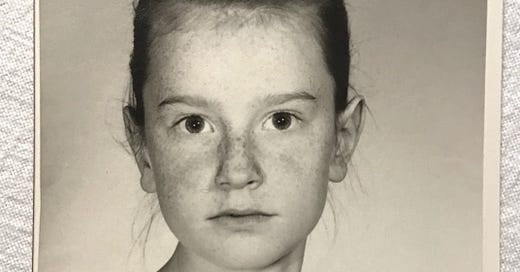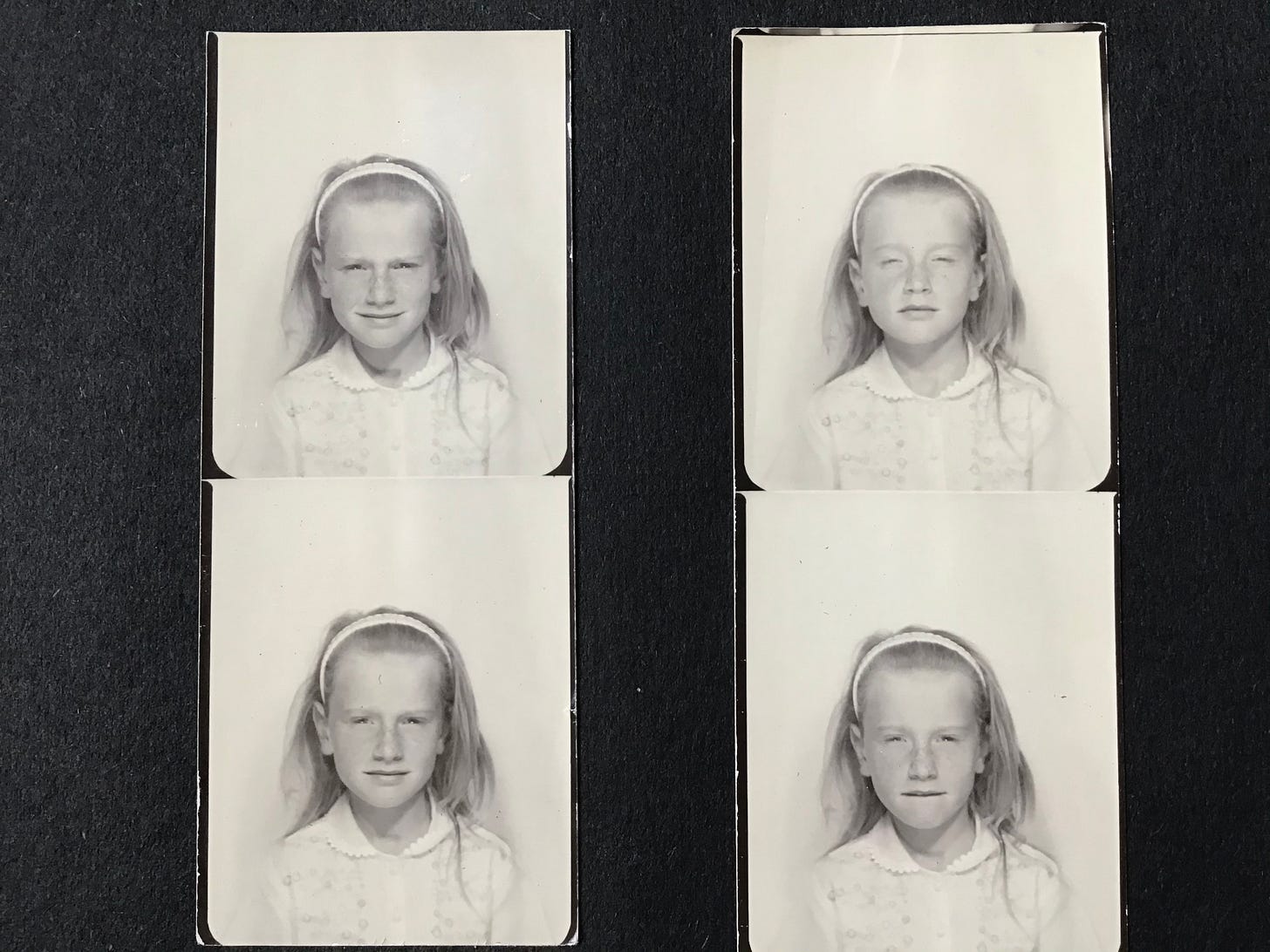For our first interview I face you on my little second-hand couch. It is a dark night at the end of December in 2014. A rented bedroom lit up at night with our reflections bouncing back from the sliding glass doors, a double bed, a dresser, all the various vintage knick knacks for sale in my Etsy shop are piled in corners. On a broken floral couch we begin our interview. It dips in the middle forcing the two of us nearer than usual, close enough for me to smell your cologne. You probably don’t know how nervous I am. And I don’t know what your wife thinks about you visiting my room at night.
You look freshly scrubbed as always, your impeccably ironed shirt, the cuffs peeking out from the arms of your beautiful tweed suit jacket at just the right amount. The shiny gel that keeps your neatly shorn hair standing at attention glistens on your head. Electricity surges between us. A laptop on a coffee table, a tiny microphone, flirtation, intellect, courage. I push the record button and pause before I ask my first question:
“I was thinking that we should start at the beginning and that you should tell me a little bit about how you grew up-”
“Why?” you say, startling me.
“Because -”
“So you want it to start with a birth narrative? March 8th, 1954, Newark, New Jersey,” you say dismissively.
“Goddamnit!” I squeal.
You smile with satisfaction, delighted at having confounded me at the first turn. So meticulous, even in your treachery. You are used to being the framer of questions, in your small, quiet psychotherapy office, where you sit across from patients, perfectly groomed and shod, in your bespoke, matching paisley velvet armchairs.
I might have prefaced our interview by telling you that neither interviewer or interviewee should be in control in an oral history interview. Or that the standard opening question should beg elaboration, open-ended, with no particular bias. Certainly not a question that can be answered by a yes or no. But I didn’t tell you so you find a way to shut it down with one word.
“When I edit it this together I need to have beginning stuff -” I say, trying to regain my composure.
“I promise I'll give you beginning sentences,” you say soothingly. “But could we just talk about what's happening now? For example - ”
“I'm supposed to be in charge! You get that - right?”
“I do,” you laugh. “But my understanding was that your topic was transformation.”
I can see now that the way you hold your ground this tight is a defense mechanism. You need to be in charge. To feel comfortable you set rigid boundaries around activities - what time you will arrive and leave, what will be discussed. I remember clearly our first spat, only a few months prior, when you were married to Tracy. I was invited over with a few friends to eat and to watch a Harry Potter movie at your house. I found it odd then how much you loved Harry Potter films. The sun was going down just behind the hedge outside the dining room windows where you set up the movie on Tracy’s tiny laptop. Looking into the sun and trying to focus on the screen was freaking me out, but you refused my request to shut the curtains in the dining room. Nothing would dissuade you, even your wife. I was so frustrated that we should all perch on hard chairs for two hours, harming our eyes by squinting at the tiny screen with the sun beaming in through the windows behind it. The more I pleaded and then insisted, the more you dug into your position. It was an absurdly strange power play.
I attempt to refresh the interview and outrun your oppositional defiance by changing tack. “Let me say this on tape here: what's fascinating to me is that you're one of the smartest people I know -”
“I notice that you qualified that,” you interject. “But for a brief moment, a wonderfully brief moment you said THE smartest person -”
“I did!” I laugh. “The other day I said - you're THE smartest person - OK. You're the smartest person I know, and you've gone through a lot of transformations. Is that better?”
“Thank you,” you say gracefully, settling back again into the sinking couch, apparently satisfied. “Here's the thing - do you want to make this a story about a sex change?” You ask.
“No. I want to make it a story about transformation. This is radio baby! This is oral history! This is story!”
“I thought it was - let’s talk about transformation as a concept -”
“It is, but it is ultimately about you. Because that's what we're interested in. I wouldn't have picked you if I didn't want to interview you.”
You stop and think about what you might have gotten yourself into.
“If I weren't the smartest person you know,” you say flippantly. “She'll say whatever she has to say!”
I swear that I did not intend to trick you in any way. I thought you understood at the time that I wanted your story about your transformations. I wonder now if you felt tricked.
“I have this antique dress form,” I say, changing tack again, pointing to the corner of my bedroom.
A Superior Model Collapsible Dress Form, 1962, is printed on the yellowed linen body, and New York City, cast into its iron base. It seems very symbolic now because of all the dresses you bought me over the years, and because you loved to sew on your mother’s old machine. Your mother made all of your clothes as a girl, including the crinolines which you told me you adored, and wore all at one so that your dresses stood out stiff from the sides.
“I wonder how much intelligence has to do with transformation,” I add. “The other day you said: ‘Oh! Is this one of the ones you can get inside and it forms to your body?’”
“And make it fit to you!” You are excited again at my subject matter.
But that’s crazy. You must have known that such a dress form didn’t exist. You must have seen that on Dr. Who or Harry Potter. I hadn’t remembered the dress form in the room with us for our interviews until now. But of course it was. It was so perfect. And all of your wife’s tiny dollhouse miniatures that I was selling on my Etsy shop. These items couldn’t have been any more symbolic, because soon I was to displace Tracy in your house on Pleasant Lane. And then you came to me in my dream after you died with the most special creation. My time-travel dress, tailored perfectly to me - a swirling mass of purples, violets, and blues, an ocean in a full taffeta skirt. When the bodice was zippered up in the back I was instantly myself, and ready for travel in any time or atmosphere.
“Were you always fascinated with these kinds of things?” I ask. “What do you remember your first fascinations of transformation as being?”
“Well that's a good question,” you say, with satisfaction.
“I know!” I shout, taking back an inch of authority.
“You finally hit on an interesting one. Where were you born and all that crap is not interesting.”
TO BE CONT…
Subscribing at any level would mean the world to me and our book!













Share this post